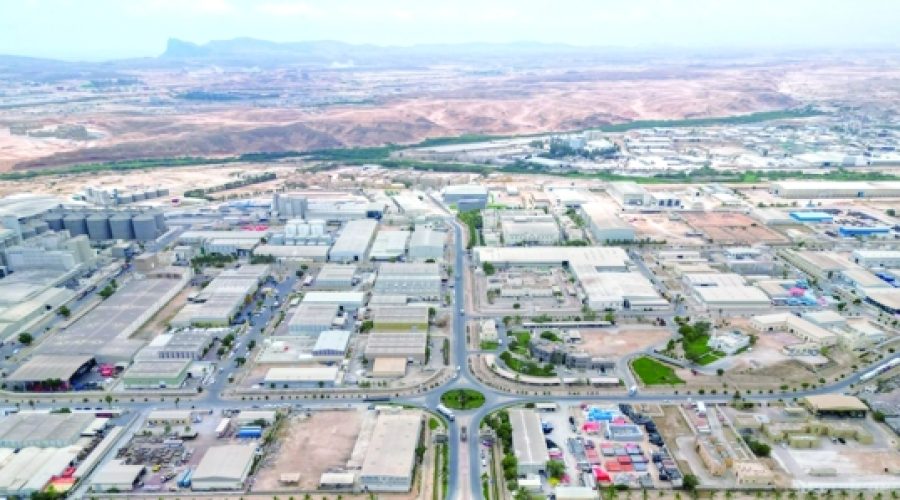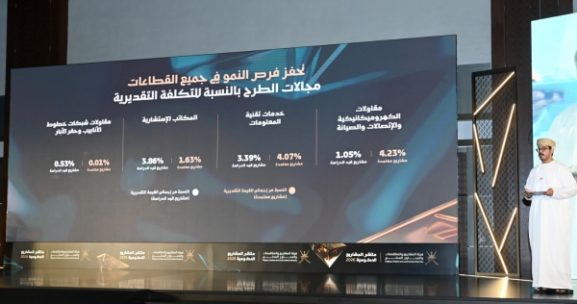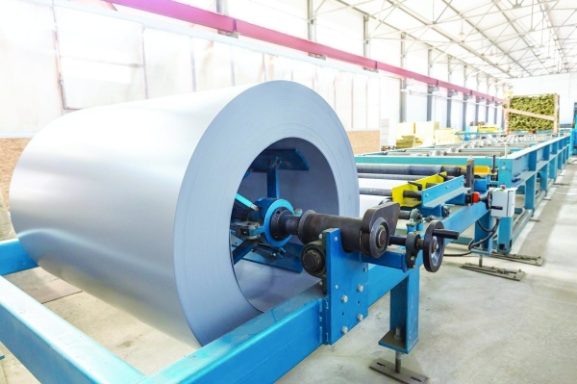National Strategies Driving E-Government and Digital Transformation: Key Opportunities for Businesses in Oman
MUSCAT: The Ministry of Commerce, Industry and Investment Promotion (MoCIIP) is steadfastly advancing Oman’s comprehensive digital transformation while enhancing the investment climate and streamlining business startup procedures. This initiative aims to attract investors to establish diverse projects that drive economic growth and contribute to the national economy.
In recent years, Oman has embarked on an ambitious path towards a knowledge-based economy and a digital society, guided by national strategies for e-government and digital transformation. These strategies encompass all vital aspects—from human capacity development and infrastructure readiness to implementing e-government tools and establishing trust through legal and regulatory frameworks.
According to Ministry data, commercial registrations reached 395,100 by the end of Q3 2025. The Oman Business Platform facilitated 75,663 transactions, with 8,323 company liquidation applications and 257,035 company cancellations recorded. Foreign investment registrations totaled 70,900, while industrial licenses issued across governorates reached 108,800.
Foreign direct investment (FDI) stood at RO 30.279 billion by mid-2025, marking a 12.8% increase from the same period in 2024. The manufacturing sector attracted RO 2.701 billion in FDI. Total trade with global markets reached RO 26.707 billion by the end of August 2025. Merchandise exports totaled RO 15.318 billion, comprising RO 9.775 billion from oil and gas, RO 4.421 billion from non-oil exports, and RO 1.122 billion from re-exports.
Manufacturing contributed RO 1.965 billion to GDP at current prices by June 2025. Industrial activities represented 18.6% of GDP, with manufacturing accounting for around 9.5%. The Ministry issued 25,177 certificates of origin in Q3 2025 and approved 44 customs exemption applications. Employment in the manufacturing sector reached 240,761 workers in 2024, including 57,627 Omanis, reflecting an Omanisation rate of 23.9%.
MoCIIP continues to enhance investment facilitation through development and technical programs via the Oman Business Platform. Recent upgrades include improved smartphone applications and new e-services such as digital lease contracts, financial reports, and an interactive trade-name directory. Integrating with 17 government agencies and exchanging data with 35 others—including the Oman Chamber of Commerce and Industry—allows investors to complete transactions within a unified digital ecosystem. Additionally, ten government agencies have implemented a compliance register for a more integrated user experience.
By the end of 2024, digital services represented 76.5% of the Ministry’s total offerings, with 89% of commercial licenses issued automatically without prior approvals. Since April 2021, over 748,000 automatic licenses have been granted. By September 2025, commercial registrations reached 395,197, including 70,900 foreign investment and 4,990 GCC citizen registrations. The Ministry also issued 580,189 commercial licenses, 108,829 industrial licenses, and 113,674 investment licenses, alongside 508,960 certificates of origin. More than 2.8 million transactions have been completed through the platform to date.
Over the past year, the Ministry has implemented 41 initiatives across trade, industry, competition protection, investment services, standards, and metrology, with a completion rate exceeding 70.7%. This year, 15 initiatives are underway with a 76% completion rate as of October 2025.
Intellectual property applications in Q3 2025 totaled 3,718, including 3,490 trademarks, 181 patents, and 10 designs. The Ministry has also reduced commercial registration fees for foreign investors to ensure parity with Omani investors and introduced incentives to support new projects aligned with economic growth objectives.
The “Invest in Oman” Hall centralizes investor services by coordinating 14 government entities and six private-sector partners, equipped with advanced systems to streamline procedures. This year, the Ministry launched the “Oman Exports” initiative to bolster support for exporters, expand access to international markets, and enhance the non-oil export sector for companies and SMEs.
Non-oil exports demonstrated significant growth, reaching RO 1.618 billion in Q1 2025, up 8.6% from Q1 2024. This surge was driven by electrical appliances and equipment exports, which rose by 141% to RO 128 million, and metal products, which increased 14.1% to RO 462 million.
The Ministry continues to support exporters with international promotion, procedural facilitation, participation in global exhibitions, and activation of trade agreements. Efforts also emphasize the “Made in Oman” brand to foster innovation, value addition, and SME involvement in global markets.
The Investment Promotion Department has engaged in “Advantage Oman” roundtables targeting quality investments from Belgium, Russia, India, Canada, Indonesia, and potential investors from the US, Japan, and Algeria, with upcoming sessions planned for Türkiye and South Africa focused on Vision 2040 sectors.
The National Program for Private Sector Development and Foreign Trade (Nazdahar) aims to empower the private sector by improving the investment environment, simplifying procedures, and strengthening international partnerships. The Oman Center for Strategic Partnerships and Foreign Trade coordinates nationwide efforts to promote strategic partnerships, enhance trade competitiveness, manage international negotiations, and foster public-private cooperation.
Through the Golden Visa Program, Oman reinforces its attractiveness as a long-term investment destination, granting 2,593 ten-year residencies, 815 five-year residencies, and 5 retiree residencies as of September 2025.
The Ministry also introduced new initiatives including the “Tejarah” communication channel, the Najd Agricultural Area Guide, an investor Engagement Window for regulatory evaluation, a Rapid Intervention Window, and the Distinguished Companies Initiative.
In standards and metrology, the Ministry recorded a 6% increase in registered conformity assessment bodies by October 2025, licensing 126 bodies and registering over 109 testing and calibration laboratories. More than 200 new Omani standards were issued alongside the review of 900 Gulf standards. The Directorate General of Standards and Metrology issued over 13,500 electronic conformity certificates, processed 22,000 customs release permits, conducted 31 technical field visits, and trained over 250 participants in the last two years.
The Omani Accreditation Center, currently under development, aims to enhance confidence in conformity assessments, build national capacity, and promote quality infrastructure awareness.
In collaboration with the Gulf Organization for Industrial Consulting, the Ministry is advancing the “Smart Production Factories” project to introduce Fourth Industrial Revolution technologies in local factories, with the second phase—covering assessments of 60 factories—initiated in 2025.
The National E-Commerce Plan, based on eight strategic pillars, has achieved 75% of its goals, including full implementation of electronic procurement, legal frameworks, and business facilitation via the “Ma’roof Oman” platform, with ongoing progress in infrastructure, skills training, and electronic payments.
Efforts to regulate licensing for the “Made in Oman” product identity aim to standardize branding, improve competitiveness, and open new export markets through campaigns and promotional events.
The Ministry remains committed to job creation and human capital development, with 10,891 Omanis employed in construction, manufacturing, wholesale, and retail sectors in Q1 2025. Omanisation and sustainable job growth are priorities for collaboration with private sector and academic partners.
The National Team for Combating Illicit Trade continues enhancing the business environment by monitoring 106 activities, including those restricted for foreign investment and sectors such as telecommunications, pharmacies, and dental clinics. Sanad Service Centers completed approximately 813,000 transactions during the first ten months of 2025.
— ONA
Special Analysis by Omanet | Navigate Oman’s Market
Oman’s sustained drive towards digital transformation and streamlined business facilitation presents a significant opportunity for businesses to leverage a rapidly improving investment environment with enhanced e-services, simplified procedures, and increased foreign investment inflows. Smart investors and entrepreneurs should capitalize on the expanding non-oil export sectors, the growing manufacturing contribution to GDP, and government-backed initiatives like the “Invest in Oman” Hall and Golden Visa Program to establish diversified, competitive ventures aligned with Vision 2040 priorities. However, they must also remain attentive to regulatory compliance and evolving standards to mitigate risks while tapping into Oman’s emerging knowledge-based economy.



